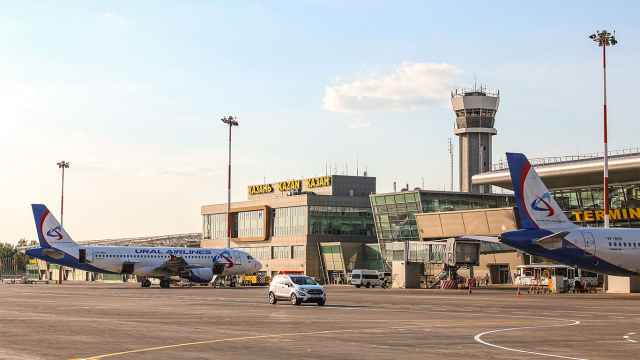Russia’s efforts to establish a self-sufficient aircraft manufacturing industry are faltering as domestic companies face persistent shortages of components and a steep decline in engineering capacity, a Russian aerospace executive has said.
Despite official promises to reduce dependence on Western suppliers, the country remains far from achieving meaningful production independence, warned Anatoly Gaydansky, CEO of aircraft parts manufacturer Aerocomposite.
“The industry’s main weaknesses are already known,” Gaydansky said in comments reported by Russian media. “Domestic producers aren’t even close to meeting the needs of the sector... the electronic component base is a significant area of concern.”
Sweeping Western sanctions have targeted Russia’s aviation sector since its full-scale invasion of Ukraine in 2022, cutting off direct access to parts and services from Boeing and Airbus. In response, Moscow pledged to relaunch Soviet-era airframes and boost domestic production.
Yet Russia has reportedly imported more than $1 billion in Western aircraft components since the war began, often rerouted through third countries or acquired via gray-market suppliers.
Gaydansky acknowledged that Russian manufacturers still rely on “friendly” countries to obtain key parts, especially electronic systems, that are difficult to replace domestically.
“While we still use some foreign-made components, the design and certification are all Russian,” he said.
Russia’s post-invasion push for aerospace self-reliance has been hindered not only by sanctions but also by decades of underinvestment and a dramatic loss of technical expertise after the Soviet collapse.
“Unfortunately, the quality of training for engineers at Russian universities has declined in recent years,” Gaydansky noted.
The cost of domestically assembled aircraft has surged by 45% to 70% over the past two years, driven by supply shortages, increased reliance on workarounds and the inflated costs of imported components.
The Russian government has sought to revive production of older models such as the Tupolev Tu-214 and increase output of newer jets like the Sukhoi Superjet 100 and the Irkut MC-21. But efforts to localize the supply chain for these aircraft have repeatedly missed deadlines.
A Message from The Moscow Times:
Dear readers,
We are facing unprecedented challenges. Russia's Prosecutor General's Office has designated The Moscow Times as an "undesirable" organization, criminalizing our work and putting our staff at risk of prosecution. This follows our earlier unjust labeling as a "foreign agent."
These actions are direct attempts to silence independent journalism in Russia. The authorities claim our work "discredits the decisions of the Russian leadership." We see things differently: we strive to provide accurate, unbiased reporting on Russia.
We, the journalists of The Moscow Times, refuse to be silenced. But to continue our work, we need your help.
Your support, no matter how small, makes a world of difference. If you can, please support us monthly starting from just $2. It's quick to set up, and every contribution makes a significant impact.
By supporting The Moscow Times, you're defending open, independent journalism in the face of repression. Thank you for standing with us.
Remind me later.






